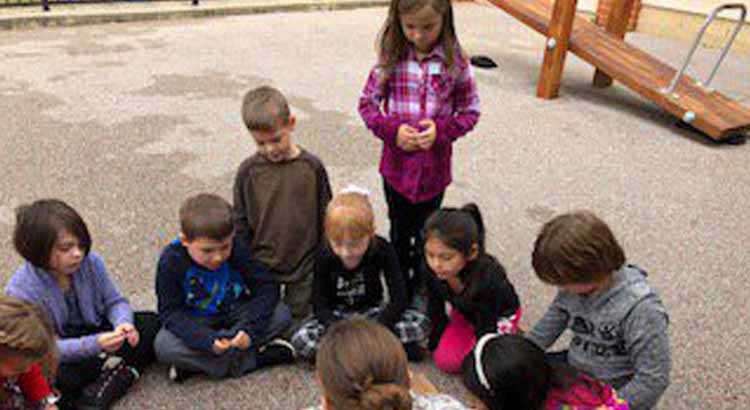This is part of a series of posts from nominees for our LifeChanger of the Year educator recognition program. We meet scores of fascinating LifeChangers every year who have interesting perspectives to share about children, education and life.
Educators always want to do the right thing. They want to create an amazing learning space for their students and craft the perfect set of engaging, empowering, and thought-provoking lessons. They want their students to be motivated, eager to learn, and inspired to tackle challenges no matter how difficult they are. They set high expectations for their students and even higher expectations for themselves. But when the bar is set so high, how do you get there?
If you are anything like me, you start by researching. You reach out to other educators and ask for ideas and feedback. You make list after list of ideas and strategies that have worked for other people, and you are hesitant to try anything that has not been proven to be effective by someone else.
But then I started to ask myself that big, loaded question of “WHY?” Why do I have to have someone tell me what works and what doesn’t? Why do I need that reassurance that I am making the right choices before I have even tried anything? Why are we so afraid to take risks? It’s because of the F word (no, not that F word)…the F word that sneaks into our brains and smothers our thoughts and worries us beyond belief…the F word of FAILURE.
And it’s not just educators who ask themselves these questions. It’s not just educators who are afraid to fail. As human beings, we are inherently good, so of course we want to make the right choices for ourselves and for those around us. We want to make ourselves happy and make others happy. We like what we know and what is familiar because it is safe. We are afraid to upset the apple cart by taking risks that might not pan out. We are afraid of change because the results of change can be unknown. But “unknown” does not mean “bad.”
Being afraid of failure is our biggest obstacle, and we are allowing this fear to hold us back and prevent us from doing things that could be the best decisions of our lives. We have to start embracing failure and change the conversation about it; we have to change our mindset. Whether we realize it or not, some of our best learning has come from our failures. When I think back to pivotal moments in my life that have shaped who I am, each moment was rooted in some type of failure, and with each failure came a valuable life lesson that I might not have otherwise learned.
So what should we do if we fail? What should our next steps be? First of all, we need to acknowledge the setback, learn from it, and accept it. See the mindset shift there? It’s not a complete failure; it’s just a setback. You have just hit a bump in the road, which allows you to start mapping out a different road you can take to try to accomplish or change your goal. Bumps are just obstacles that can be overcome; there is always another way you can try as long as you don’t succumb to frustration or disappointment. Stop thinking to yourself, “What will I do now?” and start thinking “What will I do next?” because it will get your mind thinking forward. And sometimes when you start thinking about next steps, it allows you to consider other possibilities that are available that might just be even better than your original plan.
Without my failures, and without the opportunity to learn how to respond to them, I would not be who I am today. My greatest failures have been my greatest teachers, and when I reflect on that idea, I am so extremely grateful for every single failure. I am proud that I have been able to take risks and fail forward and allow my failures to fuel my growth as an educator and as a human being. It is my hope that you will do the same.
TC100537(0418)3

